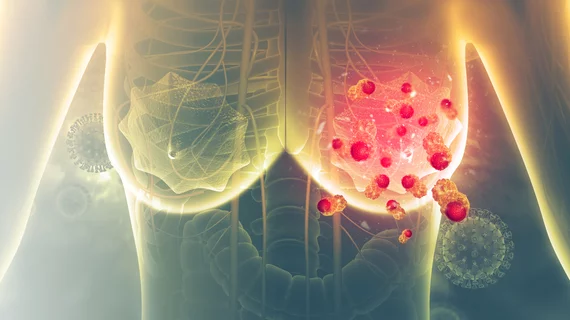Imaging operator RadNet notches first FDA clearance for AI mammography assistant
Imaging operator RadNet has scored its first clearance from the U.S. Food and Drug Administration for a new artificial intelligence tool to help prioritize mammography reading, officials announced Monday.
Saige-Q, as it’s called, works by automatically identifying suspicious breast imaging exams that require additional attention. Los Angeles-based RadNet and its AI subsidiary, DeepHealth—acquired last year for more than $40 million—hope the new technology can help its physicians simplify breast imaging triage.
“As our first FDA-cleared product, Saige-Q is a major milestone for our team,” Gregory Sorensen, MD, co-founder and CEO of DeepHealth, said in a statement. “It represents the first step of many towards delivering the best care possible for patients through rigorous science that clinicians and patients can trust.”
A study published in Nature Medicine in January highlighted success from the company’s core algorithm, helping rads spot cancers much earlier than standard interpretation. Given some of its recent tech wins, one leader told investors last month that they foresee a future where AI reads all mammograms.
RadNet dubs itself as the “leading” national provider of freestanding, fixed-site diagnostic imaging services based on revenue and locations, with 331 centers across the U.S. The publicly traded company performs almost 2 million mammography exams annually and plans to begin deploying Saige-Q at its sites to boost accuracy and productivity, officials said.
DeepHealth noted that this is the first FDA-cleared triage product that supports both 2D and 3D mammography. The Cambridge, Massachusetts-based former startup said it plans to submit a second diagnostic algorithm for FDA review later this year.

